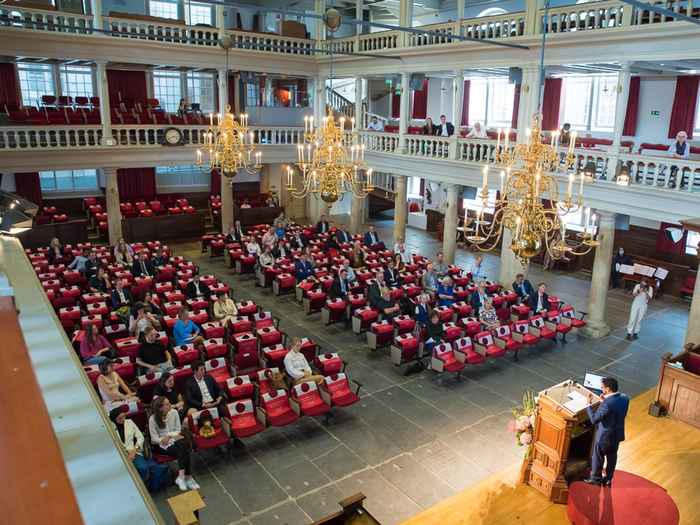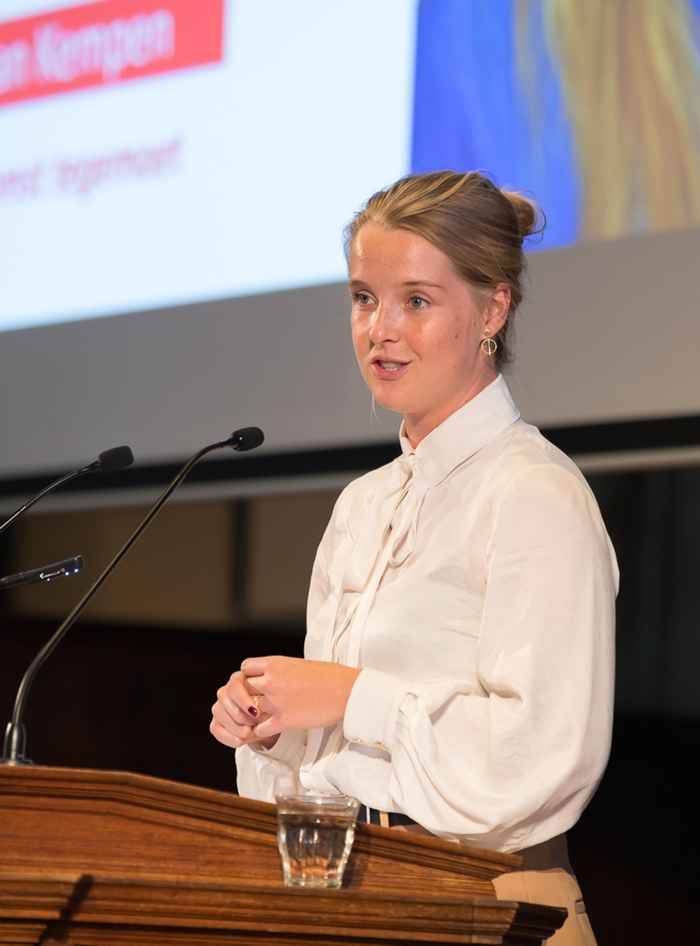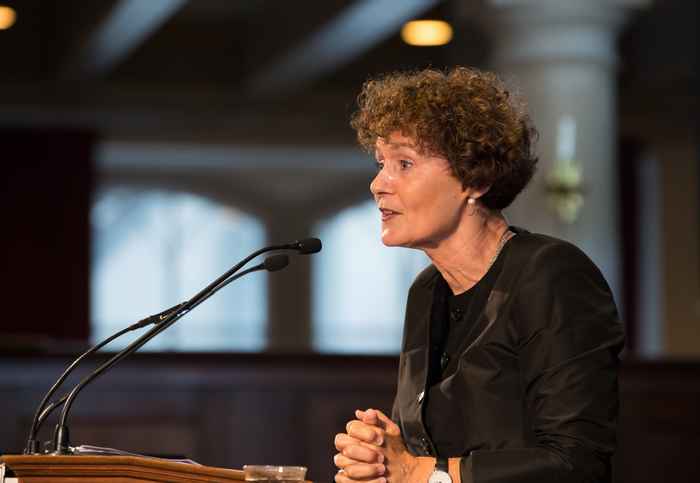Can we make a difference for Generation Alpha?
8 September 2021

Ten Dam: ‘As a university, we shape our work together with young people. After all, our education and research influence long-term areas that are crucial for future generations. We must reflect on the legacy we are leaving for Generation Alpha – the children born after 2010. I would therefore like to hear from the younger generation about how they see the future. And our opening today is dedicated to examining that issue, an important question within which is: what is the role of the University of Amsterdam?'

What kind of future can we look forward to?
Luce van Kempen, the youngest ever crown-appointed member of the Social and Economic Council of the Netherlands, talked to the public about her view of the future that awaits Generation Alpha. ‘If you look at the publications of today, you will see more than enough disaster threatening the future of students. The most far-reaching being the climate crisis. At the same time, dark clouds have also been gathering from a social perspective. The generation now embarking on their university adventure faces unprecedented socio-economic challenges.’ There is one big similarity between those two all-consuming issues, she says: ‘We’ve been able to see them coming for a long time from the top of our watchtowers.’
‘Sisters in Science’ Lotte Schreuders, Noor Abdulhussain and Mimi den Uijl usually give a glimpse into the world of science and chemistry on their Instagram channel. During the opening, they offered a glimpse into the life of a Generation Alpha child and emphasised the importance of good role models for that generation and for the university.
UvA student and student minister for Data and Privacy in the Student Cabinet Ljubiša Metikoš gave a sketch of the future as regards technology and the UvA: the UvA as a catalyst for social change and the UvA as an interdisciplinary hub. While Kurano Bigiman, UvA alumnus, teacher of classical languages at the Vossius gymnasium and the Ir. Lely Lyceum, and Amsterdammer of the Year 2020, inspired the public with a story about the road to university.

How do we make a difference for Generation Alpha?
Given the uncertain future that Generation Alpha faces, we need a resilient university, said Geert ten Dam. In addition, every young person needs individual resilience, although Ten Dam recognised that there is a great deal of pressure and, for many, the load is simply too heavy. She drew a distinction between, on the one hand, the increasing problems facing young people and, on the other, the mores of academia. ‘The mounting problems urgently require solutions and a robust public sector. A free academic world requires a university that stimulates the intellectual resilience of students and does not protect them too much. We do this by standing up for free speech together with the students and by paying more attention to their well-being within the curriculum,' said Ten Dam.